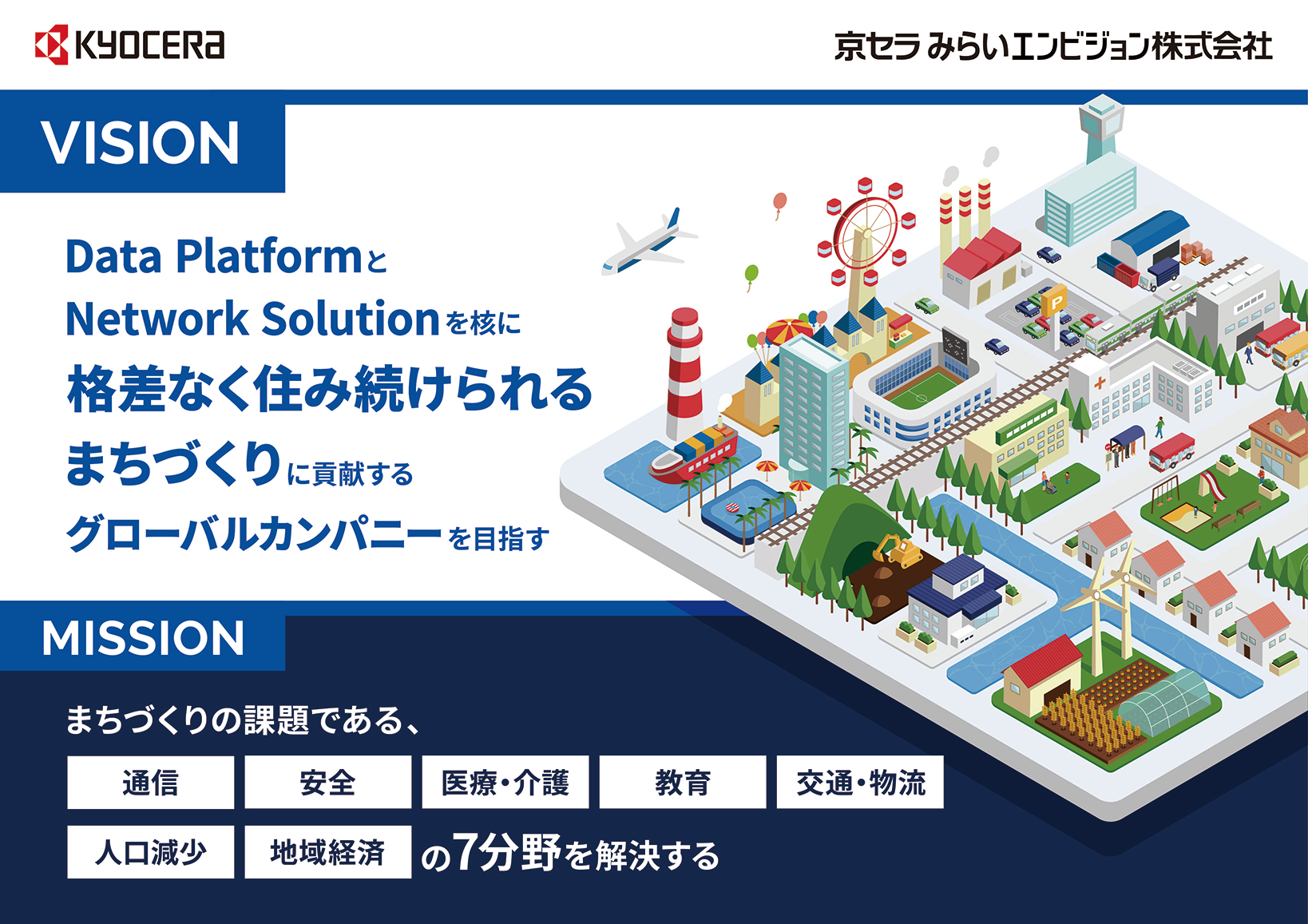
The birth of our vision
Seven common challenges KYOCERA Mirai Envision has found while serving local governments:
- 1. Telecommunications: Underserved areas lack the benefits of the Internet.
- 2. Safety: Some people may not receive disaster information in a timely manner, which could delay evacuation.
- 3. Medical and care services: Some communities have no medical facilities, and people cannot receive services.
- 4. Education: Many young families move to cities for quality education.
- 5. Transportation and logistics: Older people give up their driver's licenses and lose their means to travel to stores.
- 6. Population decline: The working population is decreasing due to aging and depopulation.
- 7. Regional economy: The regional economy is also getting more difficult due to population decline, aging, and depopulation.
We heard from the mayor of Otari Village in Nagano Prefecture and other local government mayors that their communities face similar challenges. After that, we updated our vision to reflect our pledge to address these common challenges in 2019.
Our efforts to address the seven challenges
We will develop the infrastructure for life and society necessary for building communities where people can continue to live without barriers or disparities, helping create a sense of community and creating new industries in the area.
Our mission states the seven fields with challenges to address. In each of these fields, we provide services to solve our customers' issues. We deliver systems and data infrastructure to serve this purpose and even help change customers' awareness and behavior, for which we receive a fee and aim to grow as a business.

Telecommunications
Access to information for everyone in the community is a prerequisite for a society without disparities. We provide suitable solutions for building telecommunications infrastructure that provides the required speed and access to information at a low cost.

Safety
In Japan, a disaster-prone country, it is important to develop a social infrastructure that allows people to take quick action for safety in the event of natural disasters such as typhoons, earthquakes, and tsunamis. We provide services that communicate disaster and other information for residents to live safely.

Education
Rural areas have a larger education gap for children than urban areas. For this reason, young households are moving out to urban areas, which could disable a sustainable society. Older adults also lack opportunities to learn and enrich their lives. We provide the educational services necessary for people to continue living happily in their communities.

Medical and care services
From the perspective of reducing social security costs, dementia prevention is an important issue in rural areas with a large elderly population. In addition, some communities have no doctors despite a growing need for medical and care services. We will help improve people's health by providing dementia prevention services and remote medical service infrastructure.

Transportation and logistics
In rural areas, public transportation businesses are closing one after another, and transportation challenges are becoming clear. Ensuring transportation and logistics for people living there is an important issue.

Population decline
Depopulation in rural areas is an pressing ongoing issue. It is necessary to discuss how to create a sustainable social infrastructure that will last and support lifelines even with a small population. Through digital transformation, we aim to provide solutions that allow people to benefit from government and private services and social infrastructure in an efficient manner.

Regional economy
In order to build communities where people can continue to live, revitalizing the local economy and creating new industries are indispensable. We aim to revitalize local economies by developing a community currency infrastructure to circulate currency within the region.
